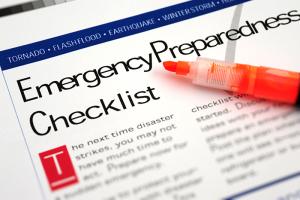Congress urges CMS to provide flexibility in outpatient payment system rule
Congress urges CMS to provide flexibility in final outpatient payment rule
Several members of Congress urged the Centers for Medicare & Medicaid Services (CMS) to provide flexibility for hospital outpatient departments (HOPDs) as it implements the site-neutral provisions in the Bipartisan Budget Act of 2015 in its upcoming final rule for the hospital outpatient prospective payment system. In a letter to CMS Acting Administrator Andrew Slavitt, 261 members of the House of Representatives said they “strongly believe numerous areas need more flexibility to ensure patients have continued access to care, and we urge changes in the final rule to protect our constituents who are Medicare patients.” Specifically, they cited the provisions related to relocation or rebuilding of already existing outpatient departments, and change of ownership of existing sites.
In a separate letter, 45 senators said they were “extremely disappointed” that CMS did not heed earlier calls for flexibility when drafting its proposed rule. “Among the most egregious problems with the proposed rule is the fact that CMS would refuse to pay a newer [HOPD] for care provided in 2017 and instead pay only the physician fee,” the senators wrote. “In addition, there is essentially no ability for an outpatient department to modernize via relocation or reconstruction, potentially denying access to our constituents. If finalized, these regulations would cripple the ability of hospitals to provide community-based outpatient care to seniors.”
FDA, CDC warn of infection risk associated with hospital heater-cooler device
The Food and Drug Administration (FDA) has updated a safety communication regarding the Stöckert 3T Heater-Cooler System manufactured by LivaNova PLC, formerly Sorin Group USA (Sorin Group Deutschland GmbH).
The FDA says the product has been associated with Mycobacterium chimaera infections in U.S. patients who have undergone cardiothoracic surgeries. They systems are used to warm or cool patients during procedures. The devices use water tanks vulnerable to contamination. The contaminated water can enter other parts of the device and aerosolize, transmitting bacteria through the air.
The FDA has issued several recommendations to help facilities prevent infection, including discontinuing use of the systems. Meanwhile, the Centers for Disease Control and Prevention has issued an advisory on the same system. It states that approximately 60 percent of heart-bypass procedures performed in the U.S. use the devices associated with M. chimaera infections.
ASPR releases new hurricane preparedness resources in wake of Hurricane Matthew
The Department of Health & Human Services' Office of the Assistant Secretary for Preparedness & Response (ASPR) has updated its hurricane resources in the wake of Hurricane Matthew. It includes numerous hurricane-related resources applicable to a variety of stakeholders and audiences. In it, ASPR addresses preparedness, response, recovery and mitigation during hurricane, flooding and tsunami emergencies.
OSHA may update guidance on glove usage in health care facilities, APIC says
The Association for Professionals in Infection Control and Epidemiology released a helpful guide on the do’s and don’ts of glove usage in health care facilities. It details the types of gloves used, when to wear them and how to care for and dispose of them.
In the document, APIC reveals that the Occupational Safety & Health Administration (OSHA) “may update guidance related to gloves as emerging pathogens arise and new recommendations are developed.” Facilities should be on the lookout for updates by visiting OSHA’s website.




